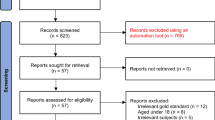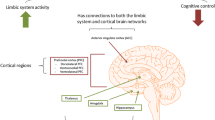Abstract
Postpartum depression disorder (PPD) is a severe illness affecting around 15% of deliveries. Several evidences suggest that PPD is, at least, partially genetic determined. The gene encoding BDNF is a strong candidate for pathogenesis of PPD since that it has been observed decrease of serum BDNF in patients suffering from PPD. The gene encoding BDNF has a polymorphism (Val66Met) that alters the regulated protein secretion; the methionine variant being associated with insufficient secretion compared with the Valine variant. We hypothesized that BDNF gene Val66Met polymorphism could be associated with PPD. We assessed 227 subjects randomly selected who had delivery at a maternity hospital using EPDS. Differences in genotype frequency were calculated by χ 2 test. Logistic Regression Analyses was performed to verify the existence of interaction between biological, psychiatric and environmental variables and PPD. Difference between groups was tested with Student’s t test. Tests were two-tailed and results significant when p ≤ 0.05. No difference in BDNF genotype distribution was observed between the depressed and non-depressed women. Educational level, stress during pregnancy, bipolar disorder and anxiety was strongly associated with PPD. We were not able to show an association between BDNF polymorphisms and PPD. Further studies are necessary to both of confirm our results and improve validity of PPD diagnosis.
Similar content being viewed by others
References
Bartolomucci A, Leopardi R (2009) Stress and depression: preclinical research and clinical implications. PloS One 4(1):e4265
Bina R (2009) The impact of cultural factors upon postpartum depression: a literature review. Health Care Women Int 29(6):568–592
Boyce MP (2003) Risk factors for postnatal depression: a review and risk factors in Australian populations. Arch Women Ment Health 6(suppl 2):43–50
Britton JR (2008) Maternal anxiety: course and antecedents during the early postpartum period. Depress Anxiety 25(9):793–800
Brockington I (2004) Postpartum psychiatric disorders. Lancet 363(9405):303–310
Cox JL, Murray D, Chapman G (1993) A controlled study of the onset, duration and prevalence of postnatal depression. Br J Psychiatry 163:27–31
Dennis CL, McQueen K (2009) The relationship between infant-feeding outcomes and postpartum depression: a qualitative systematic review. Pediatrics 123(4):e736–e751, Review
Duncan LE, Hutchison KE, Carey G, Craighead WE (2009) Variation in brain-derived neurotrophic factor (BDNF) gene is associated with symptoms of depression. J Affect Disord 15:215–219
Egan MF, Kojima M, Callicott JH, Goldberg TE, Kolachana BS, Bertolino A (2003) The BDNF val66met polymorphism affects activity-dependent secretion of BDNF and human memory and hippocampal function. Cell 112:257–269
Faisal-Cury A, Tedesco JJ, Kahhale S, Menezes PR, Zugaib M (2004) Postpartum depression: in relation to life events and patterns of coping. Arch Women Ment Health 7(2):123–131
Figueira P, Correa H, Malloy-Diniz L, Romano-Silva M (2009) Edinburgh Postnatal Depression Scale for screening in the public health system. Revista De Sa̐ưude P̐ưublica 43:79–84
Figueira P, Fernandes Malloy-Diniz L, Aurélio Romano-Silva M, Silva Neves F, Corrêa H (2009) Postpartum depression and comorbid disorders: frequency and relevance to clinical management. Archives of Women's Mental Health 12(6):451
Forty L, Jones L, Macgregor S, Caesar S, Cooper C, Hough A, Dean L, Dave S, Farmer AF, McGuffin P, Brewster S, Craddock N, Jones I (2006) Familiarity of postpartum depression in unipolar disorder: results of a family study. Am J Psych 163:1549–1553
Gatt JM, Kuan SA, Dobson-Stone C, Paul RH, Joffe RT, Kemp AH, Gordon E, Schofield PR, Williams LM (2008) Association between BDNF Val66Met polymorphism and trait depression is mediated via resting EEG alpha band activity. Biol Psychol 79(2):275–284
Halbreich U (2005) Postpartum disorders: multiple interacting underlying mechanisms and risk factors. J Affect Disord 88:1–7
Harris B, Huckle P, Thomas R, Johns S, Fung H (1989) The use of rating scales to identify post-natal depression. Br J Psychiatry 154:813–817
Kelly R, Zatzick D, Anders T (2001) The detection and treatment of psychiatric disorders and substance use among pregnant women cared for in obstetrics. Am J Psychiatr 158(2):213–219
Kendler KS, Thornton LM, Gardner CO (2000) Stressful life events and previous episodes in the etiology of major depression in women: an evaluation of the ‘‘kindling’’ hypothesis. Am J Psychiatry 157:1243–1251
Lahiri DK, Nurnberger JI Jr. (1991) A rapid non-enzymatic method for the preparation of HMW DNA from blood for RFLP studies. Nucleic Acids Research 19(19)
Lommatzsch M, Hornych K, Zingler C, Schuff-Werner P, Höppner J, Virchow JC (2006) Maternal serum concentrations of BDNF and depression in the perinatal period. Psychoneuroendocrinology 31:388–394
Mahon P, Payne J, MacKinnon D, Mondimore F, Goes F, Schweizer B et al (2009) Genome-wide linkage and follow-up Association Study of postpartum mood symptoms. Am J Psychiatr 166(11):1229–1237
Martinowich K, Manji H, Lu B (2007) New insights into BDNF function in depression and anxiety. Nat Neurosci 10(9):1089–1093
Murphy-Eberenz K, Zandi PP, March D, Crowe RR, Scheftner WA, Alexander M, McInnis MG, Coryell W, Adams P, DePaulo JR Jr, Miller EB, Marta DH, Potash JB, Payne J, Levinson DF (2006) Is perinatal depression familial? J Affect Disord 90:49–55
O’Hara MW, Swain AM (1996) Rates and risk of postpartum depression—a meta-analysis. Int Rev Psychiatry 8:37–54
Pawlby SJ, Hay DF, Sharp DJ (2001) The effects of postnatal depression on the development of boys. Arch Women Ment Health 3–5
Rahman A, Iqbal Z, Bunn J, Lovel H, Harrington R (2004) Impact of maternal depression on infant nutritional status and illness. Arch Gen Psychiatry 61:946–952
Riecher-Rössler A, Fallahpour MH (2003) Postpartum depression: do we still need this diagnostic term? Acta Psych Scand 108:51–56
Sanjuan J, Jover M, Ivorra JL, De Frutos R et al (2008) Mood changes after delivery: role of the serotonin transporter gene. Br J Psychiatry 193(5):383–388
Sun H, Tsai H, Ko H, Chang F, Yeh T (2004) Association of tryptophan hydroxylase gene polymorphism with depression, anxiety and comorbid depression and anxiety in a population-based sample of postpartum Taiwanese women. Genes Brain Behav 3:328–336
Treloar SA, Martin NG, Bucholz KK, Madden PAF, Heath AC (1999) Genetic influences on postnatal depressive symptoms: findings from an Australian twin sample. Psychol Med 29:645–654
Warner R, Appleby L, Whitton A, Faragher B (1996) Demographic and obstetric risk factors for postnatal psychiatric morbidity. Br J Psychiatry 168:607–611
Author information
Authors and Affiliations
Corresponding author
Rights and permissions
About this article
Cite this article
Figueira, P., Malloy-Diniz, L., Campos, S.B. et al. An association study between the Val66Met polymorphism of the BDNF gene and postpartum depression. Arch Womens Ment Health 13, 285–289 (2010). https://doi.org/10.1007/s00737-010-0146-6
Received:
Accepted:
Published:
Issue Date:
DOI: https://doi.org/10.1007/s00737-010-0146-6




